Charlemagne - The Father of Europe (742 - 814)
Charlemagne, also known as Charles the Great, lived from 742 to 814 and was a medieval ruler who played a crucial role in shaping the political and cultural landscape of Europe. Here is an overview of Charlemagne's life and his significance as "The Father of Europe":
Early Life and Rise to Power:
Birth and Heritage:
Charlemagne was born around April 2, 742, in Aachen (modern-day Germany). He was the son of Pepin the Short, the first Carolingian king of the Franks.
Coronation as King of the Franks (768):
Following the death of his father, Charlemagne, along with his brother Carloman, inherited the Frankish Kingdom. After Carloman's death in 771, Charlemagne became the sole ruler.
Expansion of the Frankish Empire:
Military Campaigns:
Charlemagne embarked on a series of military campaigns, expanding the Frankish Empire through conquests in Western and Central Europe.
Lombard Kingdom (774):
Charlemagne conquered the Lombard Kingdom in northern Italy, adding it to his realm.
Saxon Wars (772-804):
He conducted a series of campaigns against the Saxons, aiming to Christianize and incorporate their territories into the Frankish Empire.
Eastern Expansion:
Charlemagne expanded his empire eastward into territories that include parts of present-day Germany, Austria, and Hungary.
Carolingian Renaissance:
Educational and Cultural Reforms:
Charlemagne was a patron of learning and initiated the Carolingian Renaissance, a revival of arts, literature, and education in the Carolingian Empire.
Palace School:
Charlemagne established a palace school at Aachen, attracting scholars and fostering the preservation and dissemination of classical knowledge.
Standardization of Writing:
He played a role in standardizing script and introducing Carolingian minuscule, a precursor to modern lowercase letters.
Holy Roman Emperor (800):
Coronation by Pope Leo III:
On Christmas Day in the year 800, Pope Leo III crowned Charlemagne as the Holy Roman Emperor in Rome, reviving the title in the West.
Symbolic and Political Significance:
The coronation symbolized the revival of the Roman Empire in the West and established a strong connection between the Church and the monarchy.
Death and Legacy:
Death (814):
Charlemagne died on January 28, 814, in Aachen. He was buried in the Palatine Chapel in Aachen.
Empire Division:
Charlemagne's empire was divided among his grandsons by the Treaty of Verdun in 843, marking the beginning of the Carolingian decline.
Legacy as "Father of Europe":
Charlemagne is often referred to as the "Father of Europe" for his role in unifying diverse territories under a single rule and promoting cultural and intellectual development.
Influence on European Identity:
Charlemagne's reign laid the groundwork for the development of a European identity, and he is considered a key figure in the history of the continent.
Charlemagne's rule had a lasting impact on the political, cultural, and educational landscape of Europe. His efforts to unite and Christianize the continent left a legacy that played a crucial role in shaping the medieval and subsequent history of Europe.
-
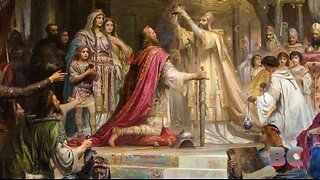 4:43
4:43
B.C. Begley
4 months agoCharlemagne: The Pinnacle of the Carolingian Empire
1613 -
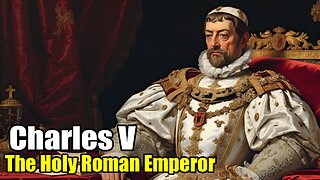 2:45
2:45
100 Historical Figures
3 months agoCharles V: The Holy Roman Emperor (1500 - 1558)
15 -
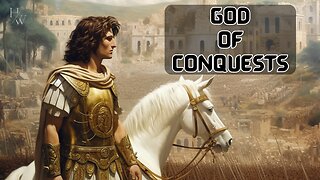 5:42
5:42
History World
3 months agoAlexander The Great: How can a Man conquer half of the World | History World
15 -
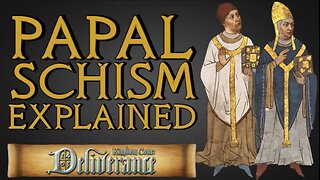 13:25
13:25
Parry This
4 months agoThe Papal Schism Explained (Western Schism)
49 -
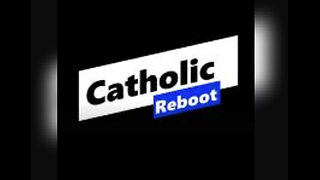 9:58
9:58
CatholicReboot
4 months agoEpisode 1885: St. Eucherius
121 -
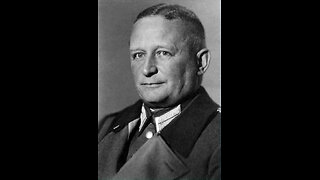 1:59
1:59
A Small Part of History
4 months ago $0.01 earnedThe Renaissance Man: Discovering the Legacy of Ferdinand von Bredow
12 -
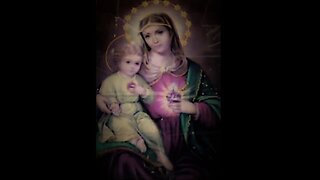 30:52
30:52
Sancta Sedes Apostolica - The Holy Apostolic See
3 months agoSermon of His Holiness Pope Jacobus I on Dominica de Passione...17 March, 2024 AD
16 -
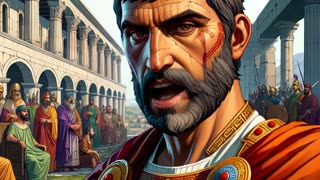 0:59
0:59
The Historical Conquest Channel
2 months agoEmperor Justinian Tells his Story over the Byzantine Empire
86 -
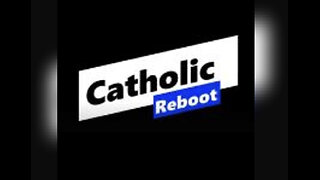 13:02
13:02
CatholicReboot
5 months ago $0.01 earnedEpisode 1791: St Volusian
87 -
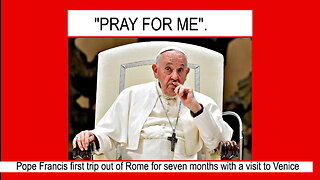 3:36
3:36
Zambian & World News Trending
1 month ago"PRAY FOR ME". POPE FRANCIS FIRST TRIP OUT OF ROME FOR SEVEN MONTHS
17